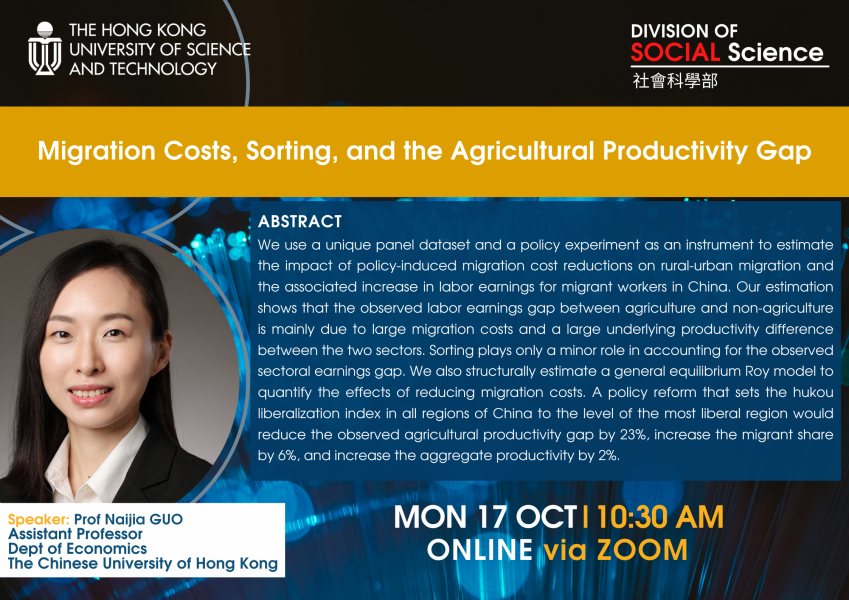We use a unique panel dataset and a policy experiment as an instrument to estimate the impact of policy-induced migration cost reductions on rural-urban migration and the associated increase in labor earnings for migrant workers in China. Our estimation shows that the observed labor earnings gap between agriculture and non-agriculture is mainly due to large migration costs and a large underlying productivity difference between the two sectors. Sorting plays only a minor role in accounting for the observed sectoral earnings gap. We also structurally estimate a general equilibrium Roy model to quantify the effects of reducing migration costs. A policy reform that sets the hukou liberalization index in all regions of China to the level of the most liberal region would reduce the observed agricultural productivity gap by 23%, increase the migrant share by 6%, and increase the aggregate productivity by 2%.
Naijia Guo is currently an assistant professor at the Chinese University of Hong Kong (CUHK). Before joining CUHK, she received a Ph.D. in economics from the University of Pennsylvania in 2014 and a B.A. in finance from Peking University in 2009. Her primary research fields are labor economics and family economics, and she specializes in structural labor. Naijia's research covers a wide range of topics, including education, wages, unemployment, migration, and intra-household decisions. Her papers have been published in the International Economic Review, the Economic Journal, Quantitative Economics, the Journal of Human Resources, and the Journal of Comparative Economics.
Remarks
- ZOOM link will be sent via email, for HKUST members ONLY
- Please use your HKUST ITSC account to join the zoom meeting.
- This meeting is being recorded. By joining, you are giving consent for this meeting to be recorded.

